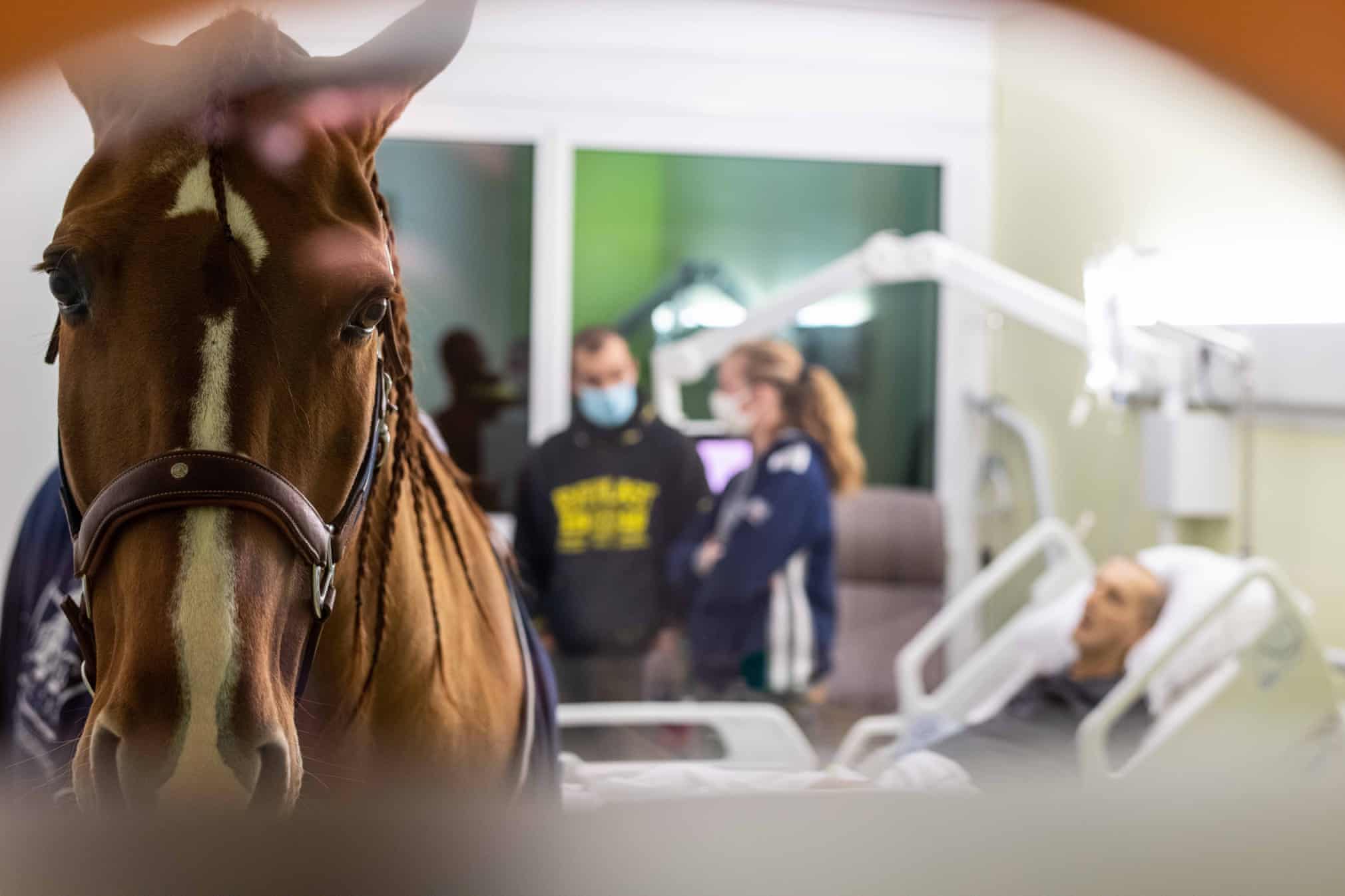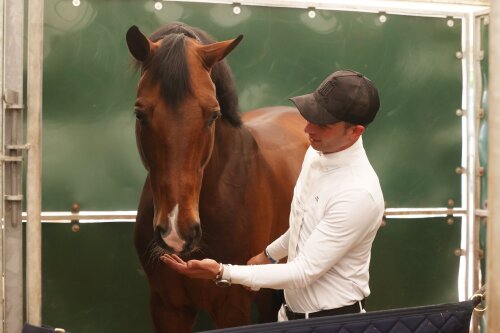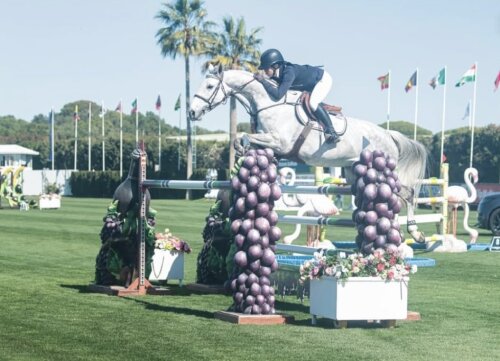"Peyo 'works' in the palliative center, with patients who know they don't have very long to live anymore," says his trainer Hassen Bouchakour. "We actually want to give patients, at the end of their lives, a life after all. We do this by creating, together with Peyo, a certain energy for the patients. We work with different psychologists to reduce anxiety in patients. In addition, he also comforts them, since they are in a lot of pain".
"Peyo chooses which room he enters. He shows this by lifting his leg in front of the door of the room he wants to enter. Peyo is now 15 and he is very smart. It seems like he automatically senses which room has cancer patients in it. I remember when he insisted on going into a room. The woman who was in the room at the time was dying. Peyo did not leave her side until she closed her eyes and never opened them again.... I accompany him but in the end it is he who decides," Bouchakour continues.
Originally, the duo competed in dressage: "That actually always went very well, until we rode our test. Then Peyo always went looking for people in the audience and refused to leave their side. That makes it very difficult when you want to leave the ring (laughs). He has a great need for human contact. I think during those competitions he was already picking out people who were not feeling well, individuals who were struggling with their mental health. After several studies, several veterinarians have determined that his brain works in a unique way".
At the hospital, they are very happy with Peyo: "Peyo and his trainer have actually become and integral part of our team. They do wonders not only for the patients but also for us. When everything gets a little more difficult, we know that they are not only there to comfort the patients but also us," says Anne Sophie, a palliative care nurse. "Peyo has been assisting our team since 2016. During that time, I think he has already assisted more than 1,000 people at the end of their lives."
The patients themselves have nothing but praise for the horse: "My son never wanted to go with me to the hospital to visit his mother. He found it difficult to be in her pain, which of course I understand. In the end, he's only seven years old," one father recounted. "Now Isaac associates the hospital with Peyo and likes to come along. That also does his mother good so you can speak of a real win-win situation in this case".
Roger, a 64-year-old patient confirms: "Peyo is my favorite doctor. I know I will sleep well today because I saw Peyo". His wife smiles, "When he has seen Peyo, he sleeps like a rose".
Bouchakour says: "Hygiene is of course very important in a hospital. Peyo is therefore always washed and disinfected before he goes into the hospital. It takes about two hours. I always disinfect him with special wipes and that takes a lot of time. Fortunately, he enjoys being brushed. I think he secretly enjoys it. Peyo has also learned to clearly indicate when it is time for a 'sanitary stop' by moving his body from side to side."
"Of course, Peyo doesn't work out every day," says his trainer. "We regularly take a walk on the beach in Calais. It's important to be able to clear our heads once in a while. Yet I notice that even in those moments Peyo only wants one thing most: to go back to the hospital."
Source: The Guardian



